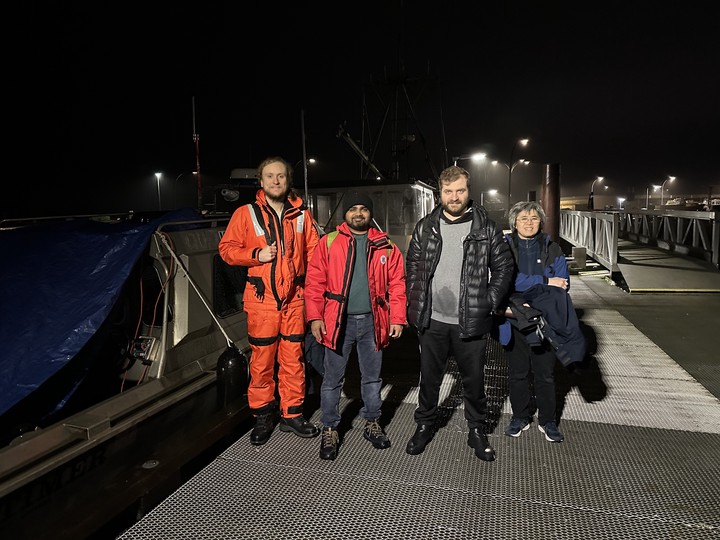Shallow water Low-Frequency propagation Loss Predictions and measurements towards acoustic range characterization

Abstract
Low-frequency ship noise negatively impacts marine ecosystems and interferes with marine mammal communications. In an effort to manage and reduce ship noise in marine environments, high-fidelity propagation loss measurements were conducted across multiple locations to develop a principled shallow water ranging methodology that improves the accuracy of shallow water ship ranging. This paper reports on a proposed propagation loss procedure and presents preliminary results from in-water tests.
Calibrated acoustic projectors, driven by a programmable function generator, were used to simulate different types of ship noise. A surface-mounted, near-field hydrophone, and a pair of bottom-mounted, far-field hydrophones were used to receive the acoustic signals. Propagation loss (PL) was estimated from the near-field and far-field hydrophones to yield source level (SL) estimates. These SL estimates were compared with the calibrated acoustic projector's known source levels to verify the propagation loss accuracy. Future work will further develop PL estimation, resulting in a shallow water ranging technique with a performance comparable to that of deep water ranging.